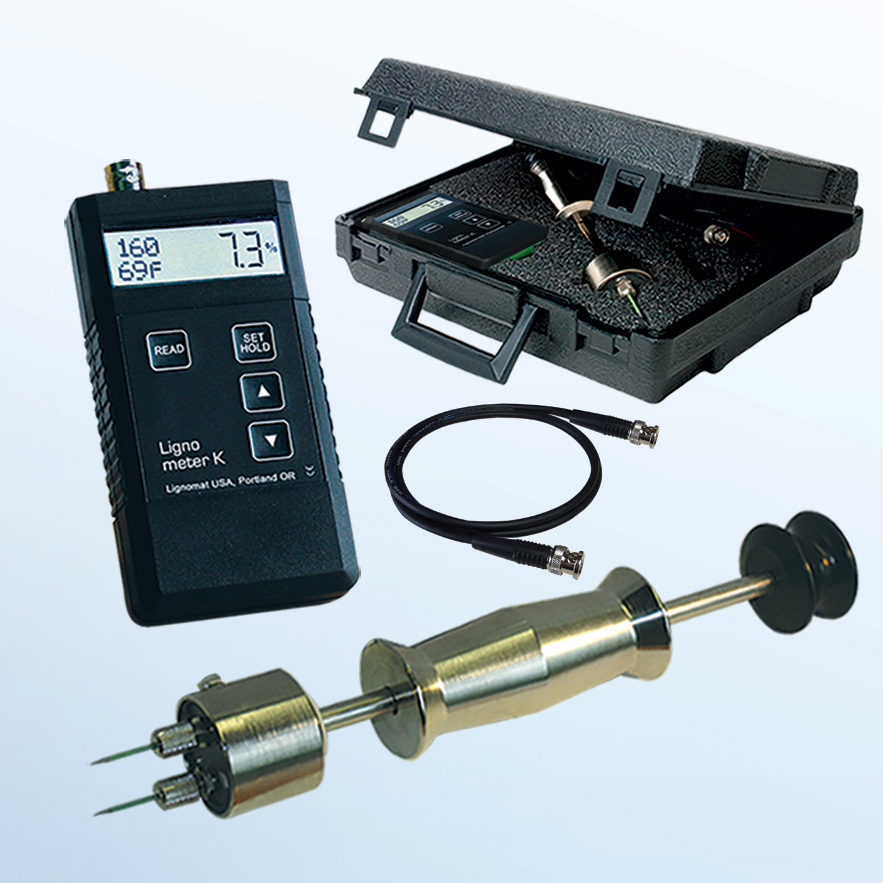Why Every Property Owner Requirements a Moisture Meter: Secret Advantages and Functions
Why Every Property Owner Requirements a Moisture Meter: Secret Advantages and Functions
Blog Article
The Ultimate Guide to Wetness Meters: A Comprehensive Introduction and How They Can Conserve You Cash
In the realm of building upkeep, building, and various markets, the significance of precisely determining dampness levels can not be overemphasized. Wetness meters work as vital tools in discovering and monitoring moisture content in materials, helping in preventing expensive damages and ensuring the top quality of products. Comprehending the nuances of various kinds of moisture meters, their applications, and the potential cost-saving advantages they supply can be a game-changer for services and experts alike. Finding exactly how these gadgets can not only simplify processes but likewise contribute to financial cost savings is a journey worth starting.
Kinds Of Moisture Meters
Various sorts of dampness meters are readily available for different applications in various markets. One usual kind is the pin-type moisture meter, which determines the electrical resistance between two pins placed right into a material. This type appropriates for timber, drywall, and various other structure materials. Pinless moisture meters, on the other hand, use electromagnetic sensing unit plates to scan a bigger location without triggering damages to the material's surface. Moisture Meter. These meters are suitable for promptly assessing wetness levels in large locations such as wall surfaces and floorings.

Infrared dampness meters measure the thermal residential or commercial properties of a material to determine its wetness content non-invasively, making them valuable for applications where pin or pinless meters may not be appropriate. Understanding the various kinds of dampness meters offered can help industries choose the most proper device for their certain moisture dimension needs.

Advantages of Using Moisture Meters
Wetness meters supply very useful advantages in accurately examining and keeping an eye on dampness levels in varied products and atmospheres (Moisture Meter). Among the primary benefits of using dampness meters is the avoidance of potential damages caused by excess wetness. By finding and resolving high dampness levels early on, dampness meters assist to stop mold and mildew development, rot, and structural damages in buildings, conserving both time and money on repair work. Furthermore, moisture meters aid in making sure the high quality of materials throughout building and construction or manufacturing processes. By precisely measuring moisture material, these devices aid preserve the stability of wood, drywall, concrete, and various other materials, lowering the danger of failings or defects.
Additionally, using dampness meters can result in boosted power performance. By identifying locations with high dampness levels, such as leakages or bad insulation, changes can be made to enhance power conservation and minimize energy expenses. In farming setups, moisture meters play a vital role in optimizing crop returns by allowing farmers to keep an eye on dirt moisture degrees and make informed watering decisions. On the whole, the benefits of making use of moisture meters extend across numerous markets, giving economical remedies and promoting far better quality assurance methods.
How to Select the Right Wetness Meter
When selecting a wetness meter, it's crucial to make certain that the meter is appropriate for the certain material you will be screening. Various materials have differing electric buildings that can affect moisture analyses, so picking a meter made for your product index is crucial for accurate outcomes. By meticulously examining these elements, you can select a dampness meter that satisfies your needs and supplies accurate moisture measurements for your projects.
Appropriate Methods for Moisture Meter Use

Expense Financial Savings Through Dampness Meter Applications
Just how can the strategic application of moisture meters lead to significant cost financial savings throughout various markets? In the farming industry, moisture meters aid in identifying the ideal time for gathering crops, avoiding over-drying or excess dampness that can you can try this out affect the final item's quality.
In a similar way, in building and construction, wetness meters assist stop pricey damages by discovering wetness degrees in structure materials, such as timber or concrete, which can cause structural concerns otherwise resolved quickly. By identifying problem areas early on, contractors can take restorative steps to stay clear of considerable repair work or substitutes, ultimately conserving money and time.
In addition, in the food handling sector, wetness meters are crucial for monitoring item high quality and making sure compliance with safety policies. By precisely gauging moisture content in foodstuff, suppliers can prevent putridity, keep quality, and decrease waste, causing significant cost savings. In general, the strategic application of wetness meters is a beneficial financial investment that can cause significant price decreases and boosted effectiveness throughout different markets.
Final Thought
In final thought, moisture meters are beneficial devices for identifying and gauging moisture levels in different products. By making use of the best moisture meter and following correct methods, individuals can efficiently prevent costly damages caused by excess wetness.
Wetness meters offer as indispensable devices in detecting and monitoring moisture material in products, assisting in stopping expensive problems and ensuring the quality of items. Infrared dampness meters determine the thermal buildings of a material to determine its wetness material non-invasively, making them useful for applications where pin or pinless meters may not be appropriate.Moisture meters supply click reference very useful benefits in properly keeping an eye on and evaluating wetness levels in varied products and settings. In farming settings, dampness meters play a crucial role in maximizing crop returns by making it possible for farmers to keep an eye on dirt moisture degrees and make notified watering choices.In conclusion, wetness meters are useful tools for detecting and measuring dampness levels in numerous materials.
Report this page